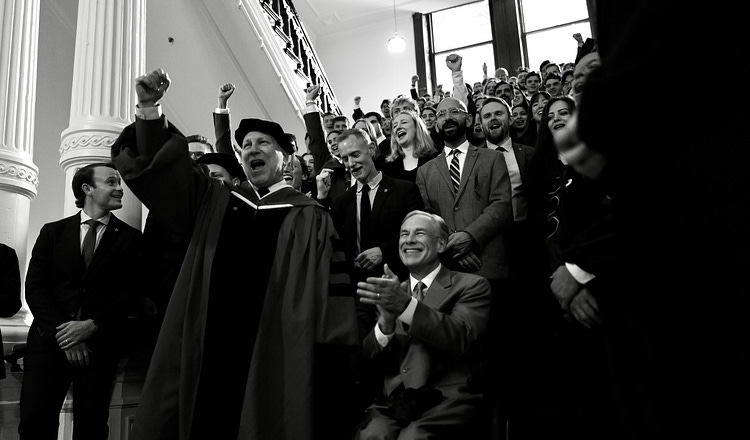A Revolution Begins in Austin, Texas

The founding class of the University of Austin is welcomed to the Texas State Capitol to celebrate convocation day. University president Pano Kanelos stands to the left of Governor Greg Abbott. (Joshua W. Helms)
Three years ago, the University of Austin was announced in these pages. Yesterday, the school welcomed the class of 2028. This is what the president told them.
227
On November 8, 2021, a college professor named Pano Kanelos set off what felt like a bomb in these pages when he announced that in a country with more than 4,000 colleges and universities, he was moving to Austin, Texas, to start a new one.
“We are done waiting. We are done waiting for the legacy universities to right themselves. And so we are building …
Continue Reading The Free Press
To support our journalism, and unlock all of our investigative stories and provocative commentary about the world as it actually is, subscribe below.
$8.33/month
Billed as $100 yearly
$10/month
Billed as $10 monthly
Already have an account?
Sign In

